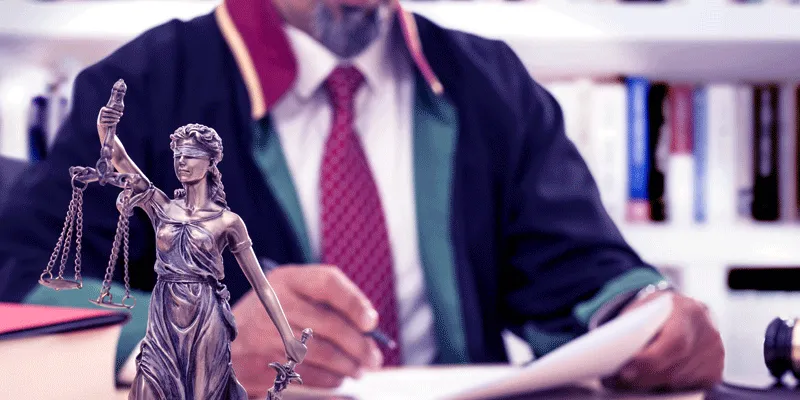Top advocates who accept `cash, cheque or both’ left stranded at the short-end of demonetisation stick
The withdrawal of Rs 1000 and Rs 500 currency notes have not only hit the common man hard, it has also affected jet-setting lawyers who charge huge amounts, often in cash, for a personal appearance in the country's top courts.
“You can pay my fee either fully by cash or fully by cheque - whatever suits you,” is what India’s oldest jurist and top criminal lawyer tells clients.

A lawyer, quoting this Supreme Court advocate, told YourStory that he was shocked at the flexibility the man offered as the fee in question was Rs 10 lakh – which is par for the course for about two dozen top lawyers who practice in the apex court and occasionally grace the High Courts with their presence to represent high profile clients.
The lawyer, a junior in the Karnataka High Court who charges a pittance compared to these top rung standards, was told by his client fighting a criminal case that he wanted this particular heavyweight lawyer at `any cost’.
Our source’s interaction with the man of law left him shocked, particularly when the latter said that he was willing to accept both cash and cheque, and put the onus on the client.
“I understood that they have to be paid fancy amounts for an hour’s appearance in the top courts, but I was really shocked at the way he put it. As I had to pay the fee at his Delhi office, I was not prepared to pay him fully in cash, as it would create a logistics problem. Can anybody travel with Rs 10 lakh in cash through airport security without being noticed? Finally, my client arranged for Rs 4 lakh to be paid in cash and the rest through a cheque,” says the Bengaluru-based lawyer, even now shocked at recalling the conversation that took place a couple of months ago.
Post demonetisation, a huge constituency that deals with cash – lawyers and advocates – will be hit severely. “Interestingly, one is not clear as to how they will deal with the situation now, as a majority of the lawyers would have been stranded with huge amounts of cash,’’ adds another lawyer, who preferred not to be quoted, fearing being made a black sheep among the men in black.
The men in robes - top lawyers don’t wear an advocate’s coat, but robes that trail behind them, adding to their flamboyant persona - have long been known for dealing with a healthy combination of cash and cheques. Their lives are extravagant, to say the least; fancy cars, fancier houses, holidays abroad, fine dining and tastes in whiskey that would burn a black hole in any purse – this is how they go about their lives, flitting in and out of court halls.
So how do they invest their hard-earned money? Many lawyers, sources said, manage a fine balance between cash and cheques for their services. While they reportedly invest in companies on the stock market, real estate also holds great attraction for them, working in a way that suits their tastes – in both black and white.
But, of course, there are exceptions, like the famous Parsi lawyers of Mumbai who have made a name for themselves as legal eagles. These gentlemen of the bar take very little for themselves – 20 percent or so, junior lawyers say - and ask clients to write out a cheque for the remainder in the name of their trusts. Incidentally, money that goes into trusts is tax free, and that is the reason the government, post-demonetisation, is very keen on investigating trusts, societies and other groups that fall into the non-taxable category.
Since last week, the Income Tax department has been sending notices to trusts and societies of all kinds, asking them to inform it about the cash balances held by them as of November 8, the day Prime Minister Narendra Modi announced the scrapping of Rs 500 and Rs 1,000 notes as legal tender.
The I-T department is empowered to send such notices under Section 133(6) of the Income Tax Act, which authorises the department to compel banks and other private entities to furnish any information.
Most of these top lawyers are also politicians - who hold or have held powerful positions while their respective parties formed the government.
When asked, assistants to senior lawyers, who are themselves no small fry, admit that demonetisation has hit them hard, but have no ready answer as to how their seniors will accept payments henceforth. “If anybody, it is the litigants who will suffer,” some of them say, with that air of confidence that marks this tribe out as being superior in law.







